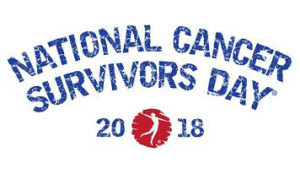 National Cancer Survivor’s Day
National Cancer Survivor’s Day
It seems we all are affected by cancer in one way or other. If you don’t have cancer yourself, you likely know someone close to you who does. More than 15.5 million children and adults with a history of cancer were alive on January 1, 2016, in the United States. (American Cancer Society, Cancer Treatment & Survivorship Facts & Figures 2016-2017. Atlanta: American Cancer Society; 2016).
These numbers do not include all the people loving, supporting, and caring for someone with cancer.
June 3rd is National Cancer Survivor’s Day. What does it mean to be a cancer survivor? How can seeking talk therapy help for survivors and their families?
Coping as a Survivor
“Cancer Survivor” refers to any person with a history of cancer, from the time of diagnosis through the remainder of their life. Cancer survivorship programs at local hospitals and cancer centers acknowledge that diagnosis and treatment plans change the identity of the patient and their family. The idea of these programs is to offer suggestions for managing the physical and psychological after-effects of cancer. As well as developing strategies for coping with a long-term, on-going diagnosis. Therapy referrals are often a part of care plans for cancer patients. Their families and friends can sometimes assist in managing the unexpected, long-term psychological effects.
Many cancer patients report they have a new way of seeing themselves, their relationships, and the world. Patients often report mistrust in their own body they had never experienced prior to diagnosis. People affected by cancer report problems adjusting to role changes in the family, intense fatigue, feelings of guilt, difficulty concentrating, relationship problems, memory issues, anxiety and/or depression, weight changes, financial concerns, irritability, a decrease in sexual activity or desire, and uncertainty in navigating the medical system.
Psycho-Oncology
A growing number of cancer patients and their families and friends seek emotional support for all the changes cancer brings. The emotional effects of cancer have been reported by patients to be more difficult than the physical effects. The medical team is not trained, nor do these professionals have time to address their patients’ psychological concerns. Cancer Centers often refer patients to a therapist who specializes in Psycho-Oncology, Health Psychology, or Psycho-Medical Consulting.
Psycho-Oncology focused therapy provides support for patients and families with coping with the psychological concerns that often come with cancer. This could be grieving losses around career, health, the potential of longevity, loss of dreams, permanent body changes, a decrease in physical and mental abilities, hair-loss, relationship changes, loss of energy, and sometimes loss of quality of life and loss of hope.
By engaging in individual, couple or family therapy, patients and families are offered an opportunity to process feelings, discuss diagnosis and expectations with all family members, assist in age-appropriate discussions with youngest family members, seek and sustain hope, identify meaning and quality of life, encourage empowerment, manage symptoms of depression and anxiety, explore shifts in identity, adjust to a new normal, create plans for the future, and as needed, approach grief and provide grief support. Please call if you and/or your support circle may benefit from Psycho-Oncology or Psycho-Medical services.
Stacey Allen, MA, CCLS, LMFT has been working with oncology patients and their families for many years in the Twin Cities area as a Child Life Specialist, a Licensed Marriage, and Family Therapist, and as a Group Facilitator with Gilda’s Club Twin Cities. Stacey has been a therapist with Healthwise Behavioral Health and Wellness for over 5 years. She also specializes in working with oncology patients and families and people affected by other chronic illnesses.

